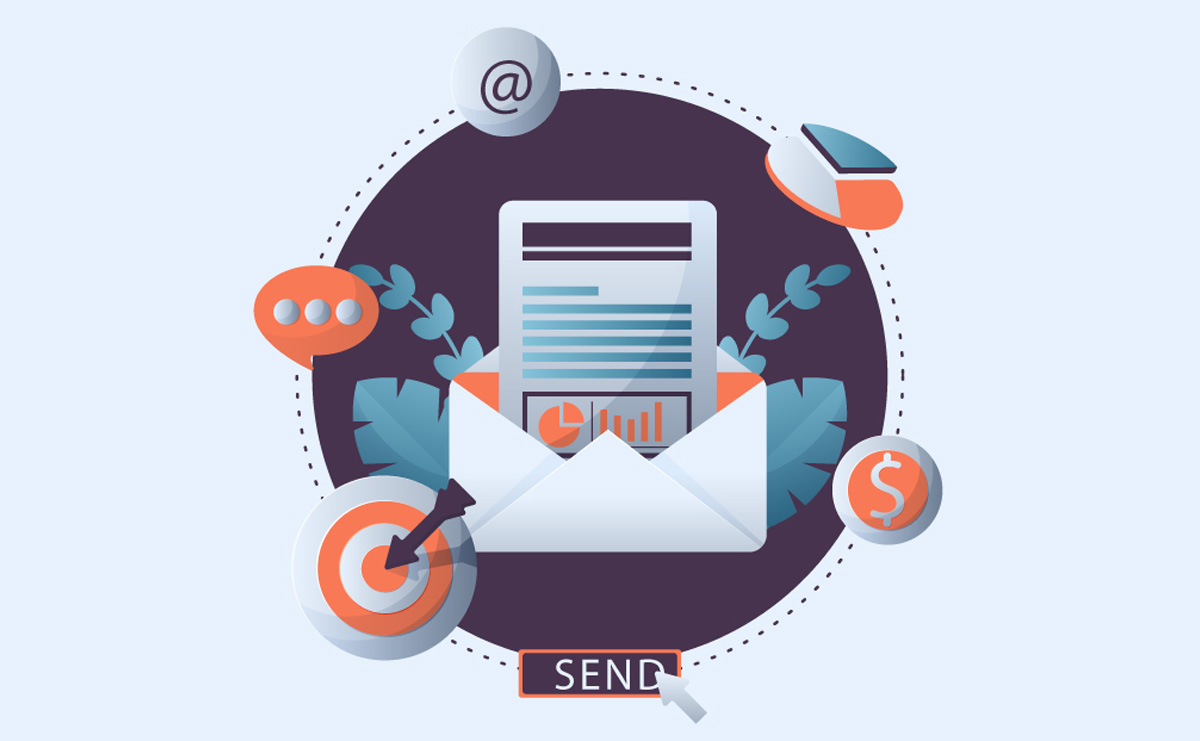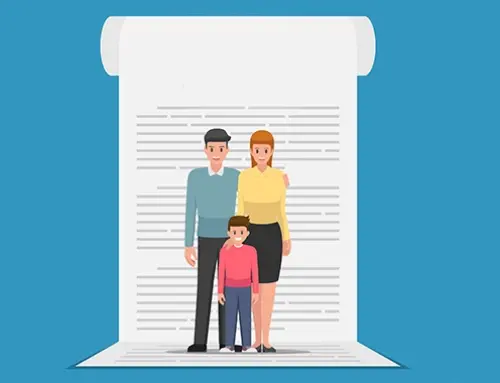Contents
Ultimate Email Marketing for Law Firms in 2024
Nowadays if a firm wishes to stand out among its rivals, marketing is a must. Among various methods of marketing, email marketing for law firms is one of the most useful and easiest ways to reach out to clients. Thus, email marketing software for law firms will be an inseparable part of the business. On this blog, we will dive into the world of email marketing for lawyers and law firms.
Understanding Email Marketing for Law Firms
I. Why Email Marketing is Vital for Lawyers
Email marketing is a powerful tool allowing lawyers to communicate directly with their clients and potential leads. Unlike other forms of digital marketing, email offers a personalized approach to staying connected with individuals interested in legal services. Email marketing for lawyers ensures that attorneys can consistently provide value through legal updates, client reminders, or informational newsletters. This outreach method is essential for fostering trust and staying relevant in a competitive market. Using email as a primary communication channel, lawyers can create long-term relationships that translate into repeat business and referrals.
II. ROI of Email Marketing for Law Firms
For law firms, email marketing stands out as one of the most cost-effective marketing methods, boasting an average return of $40 for every $1 spent. Email marketing for law firms delivers a unique advantage by reaching audiences directly in their inboxes, reducing the need for expensive advertising channels. Moreover, it enables firms to deliver targeted messages, ensuring higher engagement rates than generalized advertising. Law firms can boost client retention, generate new leads, and maximize their marketing ROI by crafting strategic email campaigns. These advantages make email marketing a critical component of any comprehensive legal marketing strategy.

III. Trends in Email Marketing for Legal Practices
The legal industry is increasingly adopting innovative technologies to enhance communication strategies, and email marketing is no exception. Modern email marketing software for law firms has revolutionized the way attorneys approach client outreach. Features like automation, segmentation, and analytics allow firms to send highly relevant emails at the right time, leading to better engagement and measurable outcomes. Another emerging trend is the integration of mobile-friendly email designs, as most users now access emails on their smartphones. Staying informed about these trends enables law firms to optimize email campaigns and remain competitive in the digital landscape.
Benefits of Email Marketing for Lawyers
I. Building Long-Lasting Client Relationships
Email marketing is crucial for fostering meaningful connections between lawyers and their clients. Attorneys can demonstrate their expertise and reliability by consistently sending informative and helpful updates. Email marketing for lawyers enables legal professionals to maintain contact with both current and past clients, ensuring they remain top-of-mind when legal needs arise. Over time, these efforts build trust, which is essential for client retention and the growth of referral networks.
II. Personalizing Legal Communication
One of the key advantages of email marketing is its ability to deliver personalized messages tailored to each client’s unique needs. For example, legal professionals can segment their email lists by practice area, client type, or case status, ensuring that recipients receive only the most relevant content. This targeted approach increases engagement and enhances the overall client experience. With the help of email marketing software for law firms, creating and managing these personalized campaigns becomes seamless and efficient.
III. Cost-Effectiveness Compared to Traditional Advertising
Unlike print ads, billboards, or other traditional advertising methods, email marketing is significantly more affordable while offering a higher return on investment. Email marketing for law firms eliminates many overhead costs associated with conventional campaigns, such as printing and distribution fees. Instead, law firms can allocate resources toward creating impactful, data-driven email content that directly reaches their target audience. This makes email marketing a cost-efficient way to enhance visibility and attract new clients.
IV. Staying Ahead of Competitors
In a competitive legal landscape, law firms need to differentiate themselves and maintain visibility. Email marketing provides an opportunity to inform clients about relevant legal updates, offer insights into complex issues, and share firm accomplishments. By regularly delivering valuable content, email marketing for law firms ensures that attorneys remain at the forefront of clients’ minds. This proactive approach can provide a competitive edge, particularly for firms aiming to establish themselves as thought leaders in their practice areas.
Email marketing delivers significant advantages for legal professionals by building trust, improving client relationships, and offering a cost-effective communication method. Through personalized and timely messaging, law firms can position themselves as reliable and knowledgeable partners in their clients’ legal journeys.
How to Create an Email Marketing Strategy for Law Firms
I. Setting Clear Goals and KPIs
A successful email marketing strategy begins with setting clear objectives and defining key performance indicators (KPIs). Law firms should outline specific goals, such as increasing client engagement, improving lead generation, or enhancing client retention. Tracking KPIs like open rates, click-through rates, and conversion rates allows firms to measure the effectiveness of their campaigns. For example, email marketing for law firms can be optimized by monitoring how many recipients take desired actions, such as booking consultations or signing up for newsletters. Setting measurable benchmarks ensures that campaigns remain focused and result-driven.
II. Building a Quality Client Email List
An effective email marketing campaign requires a well-maintained email list composed of clients and potential leads who have expressed interest in the firm’s services. Lawyers can build this list by offering incentives such as free consultations, downloadable legal guides, or subscription-based newsletters. Ensuring compliance with privacy regulations, such as obtaining explicit consent from recipients, is essential for ethical and lawful email collection practices. Firms can use email marketing for lawyers to create segmented lists tailored to different practice areas or client demographics, ensuring that each email is highly relevant to its audience.
III. Segmenting Your Audience for Better Engagement
Audience segmentation is crucial in creating personalized and effective email marketing campaigns. By dividing their email list into categories based on criteria such as case type, client location, or stage in the legal process, law firms can tailor their messaging to meet specific needs. For example, clients currently involved in active cases may benefit from updates and legal tips, while past clients may appreciate reminders about estate planning or upcoming legal deadlines. With email marketing software for law firms, segmentation becomes a streamlined process, enabling attorneys to increase engagement and maintain meaningful connections with clients.
Developing a robust email marketing strategy involves:
- Setting clear goals.
- Building a qualified email list.
- Leveraging audience segmentation to deliver personalized content.
By adopting these best practices, law firms can create campaigns that resonate with their audience and achieve measurable results.
Email Content Ideas for Lawyers and Law Firms
I. Educational Newsletters: Legal Tips, FAQs, and Updates
One of the most effective ways to engage clients through email marketing is by sharing educational content. Newsletters that include legal tips, answers to frequently asked questions, and updates on law changes demonstrate a firm’s expertise while providing value to recipients. Email marketing for lawyers is particularly effective when it keeps clients informed about legal trends relevant to their lives, such as estate planning, tax law changes, or family law updates. Educational newsletters build trust and position lawyers as reliable sources of important information.
II. Case Studies and Success Stories
Sharing case studies and success stories can be a powerful way to showcase a firm’s track record and capabilities. These stories help potential clients understand how the firm has successfully handled similar cases. For example, a personal injury law firm could highlight a client’s journey to securing fair compensation. When done professionally and with client consent, such stories create a sense of credibility and confidence. Email marketing for law firms is an ideal platform to distribute this type of content, reinforcing the firm’s authority and reliability.
III. Personalized Client Check-ins and Follow-ups
Maintaining client relationships is essential for long-term success; personalized emails are a great way to achieve this. Lawyers can use email campaigns to check in with clients regarding their ongoing cases or follow up with past clients to offer further assistance. For instance, a firm specializing in family law could contact previous clients with tips on co-parenting agreements or reminders about child support deadlines. Email marketing software for law firms makes automating and personalizing these touchpoints easy, ensuring that every client feels valued and supported.
IV. Announcements: New Services, Events, or Achievements
Email is an excellent channel for sharing news about the firm, such as the launch of new legal services, upcoming events, or significant achievements. Announcements about awards, charitable contributions, or partnerships can enhance the firm’s reputation and foster goodwill. For example, a firm that expands into environmental law might email clients about its commitment to sustainability and how the new service can help address their legal needs. Email marketing for law firms ensures these updates are delivered directly to the audience most likely to benefit from or appreciate them.
Law firms can effectively engage clients and build stronger relationships by leveraging email content like newsletters, case studies, personalized check-ins, and announcements. A thoughtful content strategy maximizes the impact of email campaigns, helping firms establish authority and trust within their target audience.
Choosing the Best Email Marketing Software for Law Firms
I. Features to Look for Automation, Personalization, and Metrics
Selecting the right email marketing software like RunSensible is crucial for creating effective campaigns. The ideal platform should offer automation tools to schedule emails, send follow-ups, and manage client interactions seamlessly. Personalization features are also essential, allowing law firms to tailor messages based on client needs and enhancing engagement. In addition, robust analytics tools are necessary to track performance metrics like open rates and conversions. With email marketing software for law firms, attorneys can ensure their campaigns are efficient, targeted, and measurable, saving time while increasing impact.
II. Top Platforms for Lawyers
Several email marketing platforms cater to the unique needs of law firms. Platforms such as RunSensible and Constant Contact are popular for their user-friendly interfaces and advanced features. However, specialized tools designed specifically for law practices often provide better solutions. These platforms may include templates for legal newsletters, tools to ensure compliance with data protection laws, and features tailored to client management. Email marketing for lawyers becomes more effective when firms choose software that aligns with their specific goals and operational requirements.
III. Benefits of Using Dedicated Legal Marketing Software
Using email marketing tools designed for the legal industry offers distinct advantages. These platforms are often equipped to handle the unique compliance needs of law firms, including GDPR, PIPEDA, or HIPAA requirements, ensuring that campaigns adhere to data protection laws. Furthermore, they simplify the management of segmented lists, allowing firms to target clients by case type, legal service, or engagement stage. By adopting email marketing for law firms, attorneys can streamline their marketing efforts while delivering highly relevant content to their audience. This tailored approach improves client satisfaction and increases the likelihood of positive outcomes.
Choosing the right email marketing software empowers law firms to implement efficient, compliant, and impactful campaigns. Firms can elevate their email marketing efforts and strengthen their client relationships by focusing on features like automation, analytics, and personalization.
Optimizing Your Law Firm’s Email Campaigns
I. Crafting Effective Subject Lines
The subject line is your email’s first impression, and it plays a pivotal role in determining whether the email gets opened. Subject lines should be concise, engaging, and tailored to the recipient’s interests. Phrases that evoke curiosity or offer value—such as “Your Guide to Legal Success” or “Top 5 Estate Planning Tips”—can significantly boost open rates. For email marketing for law firms, including elements like the recipient’s name or referencing a recent interaction can add a personal touch. Testing different subject line styles can help identify what resonates most with your audience.
II. Designing Mobile-Friendly Emails
With the majority of email users accessing their inboxes on mobile devices, it is critical to design campaigns that look great on small screens. This involves using responsive email templates, ensuring text is easily readable, and including clear call-to-action buttons that are easy to tap. Email marketing for lawyers benefits from mobile-optimized designs because they enhance the user experience and increase engagement. A poorly formatted email could lead to lost opportunities, even if the content is compelling, so prioritizing mobile responsiveness is non-negotiable.
III. Timing and Frequency of Email Sends
Timing is key to ensuring that your emails reach recipients when they are most likely to engage. Studies suggest that midweek mornings are often optimal for email campaigns, but analyzing your audience’s behavior is crucial to determining the best schedule. Frequency also matters; sending too many emails may overwhelm clients while sending too few can result in reduced visibility. For email marketing software for law firms, automated scheduling tools help maintain a consistent cadence without oversaturating inboxes, striking the perfect balance between engagement and restraint.
IV. Avoiding Spam Filters and Increasing Deliverability
Ensuring that emails reach the intended recipient’s inbox is critical to successful email campaigns. Avoiding spammy practices—such as using all caps, excessive punctuation, or irrelevant content—is key to bypassing spam filters. Additionally, using a verified domain for sending emails and including an easy-to-use unsubscribe link helps build trust with email providers. Email marketing for lawyers can achieve better deliverability rates by adhering to these best practices and creating high-quality, relevant content that adds value for the recipient.
Optimizing email campaigns involves a combination of creative and technical strategies. From writing compelling subject lines to ensuring deliverability, each element contributes to a campaign’s success. By leveraging the tools and insights provided by email marketing for law firms, attorneys can create impactful communications that resonate with their audience and drive measurable results.
Measuring and Improving Your Email Marketing Results
I. Key Metrics to Track
To ensure the success of email campaigns, law firms must monitor key performance indicators (KPIs) that provide insights into engagement and effectiveness. Metrics such as open rates, click-through rates (CTR), conversion rates, and unsubscribe rates are essential for evaluating the impact of each email. For email marketing for lawyers, tracking client actions—such as scheduling consultations or downloading legal resources—can help determine the campaign’s ROI. Analyzing these metrics allows firms to identify what works and refine their strategies accordingly.
II. A/B Testing for Continuous Optimization
A/B testing is an invaluable method for improving email marketing outcomes by testing different elements of an email campaign. This involves sending two variations of an email to various subsets of your audience and analyzing which version performs better. Elements to test include subject lines, email layouts, call-to-action buttons, and content tone. For email marketing for law firms, A/B testing can reveal preferences specific to legal clients, such as whether a formal tone outperforms a slightly conversational approach. Over time, these insights lead to more effective, tailored campaigns.
III. Common Pitfalls to Avoid in Email Marketing
Understanding and avoiding common pitfalls can significantly enhance email marketing efforts. One major mistake is neglecting to segment the audience, which can result in irrelevant content reaching the wrong recipients. Overloading recipients with too many emails is another error that can lead to high unsubscribe rates. Failing to comply with email marketing laws, such as GDPR or PIPEDA regulations, can damage a firm’s reputation. By using email marketing software like RunSensible for law firms, attorneys can automate compliance checks, track email frequency, and ensure proper audience targeting.
IV. Using Feedback to Refine Campaigns
Gathering feedback from recipients provides actionable insights for improving future email campaigns. Law firms can include surveys, polls, or a simple feedback request within their emails to understand client preferences and concerns. For instance, recipients might indicate that they prefer shorter newsletters or express interest in receiving more case studies. Email marketing software for law firms often includes tools for collecting and analyzing feedback, making it easier to incorporate client input into the overall strategy. This iterative approach ensures continuous improvement and higher engagement rates.
Law firms can continuously refine their email marketing campaigns by tracking metrics, leveraging A/B testing, avoiding common mistakes, and using client feedback. A data-driven approach, combined with thoughtful content, ensures that email marketing for law firms remains effective, engaging, and aligned with business goals.
Transform Your Email Marketing with RunSensible
Take your law firm’s marketing to the next level with RunSensible’s powerful email marketing tools. Craft personalized emails with ease using our intuitive templates designed specifically for legal professionals. Automate follow-ups, segment your client list for targeted campaigns, and schedule emails at the perfect time—all from one platform.
RunSensible also offers advanced analytics to track open rates, click-through rates, and campaign performance in real-time. Knowing exactly what is working and where to improve helps you create more effective campaigns.
Don’t settle for guesswork—choose RunSensible and experience email marketing tailored for law firms. Sign up today and see the difference!
The Final Verdict: Why Email Marketing is Essential for Law Firms
Email marketing is vital for law firms aiming to build lasting client relationships, drive engagement, and achieve measurable results. Whether it’s sharing legal insights, following up with clients, or promoting services, email marketing provides a direct and cost-effective way to stay connected with your audience. By leveraging email marketing for law firms, attorneys can create personalized, impactful campaigns that reinforce trust and position their firm as a go-to resource in the legal field. With the right strategy and tools, email marketing has the power to transform how law firms interact with their clients and grow their practice.
Choosing the right platform and consistently optimizing campaigns are crucial to maximize success. Using email marketing software for law firms allows attorneys to streamline their efforts, track key metrics, and ensure compliance with industry regulations. From crafting compelling messages to analyzing performance, these tools enable lawyers to focus on building meaningful client connections without unnecessary hassle. In today’s competitive legal landscape, implementing email marketing for lawyers is not just an option—it is a necessity for sustainable growth and client engagement.
FAQs
1. What types of emails should law firms send to clients?
Law firms can send various emails, such as newsletters with legal updates, case studies showcasing success stories, reminders about legal deadlines, or announcements about new services. Personalized follow-ups and client check-ins are also highly effective in maintaining strong client relationships.
2. How often should law firms send marketing emails?
The ideal frequency depends on the firm’s goals and audience preferences. For most law firms, sending emails once or twice a month strikes the right balance. Overloading clients with frequent emails can lead to unsubscribe requests, while too few emails may cause clients to lose interest.
3. Is email marketing compliant with legal regulations?
Email marketing can fully comply with legal regulations, provided that firms adhere to guidelines such as GDPR, PIPEDA, or other applicable laws. This includes obtaining consent from recipients, offering easy opt-out options, and ensuring email content is relevant and professional.
4. What are the biggest challenges in email marketing for law firms?
Common challenges include creating engaging content, avoiding spam filters, and building a high-quality email list. Tracking campaign success and ensuring compliance with data privacy laws can also be hurdles. However, using data-driven strategies and modern email marketing tools can effectively address these issues.
Disclaimer: The content provided on this blog is for informational purposes only and does not constitute legal, financial, or professional advice.







